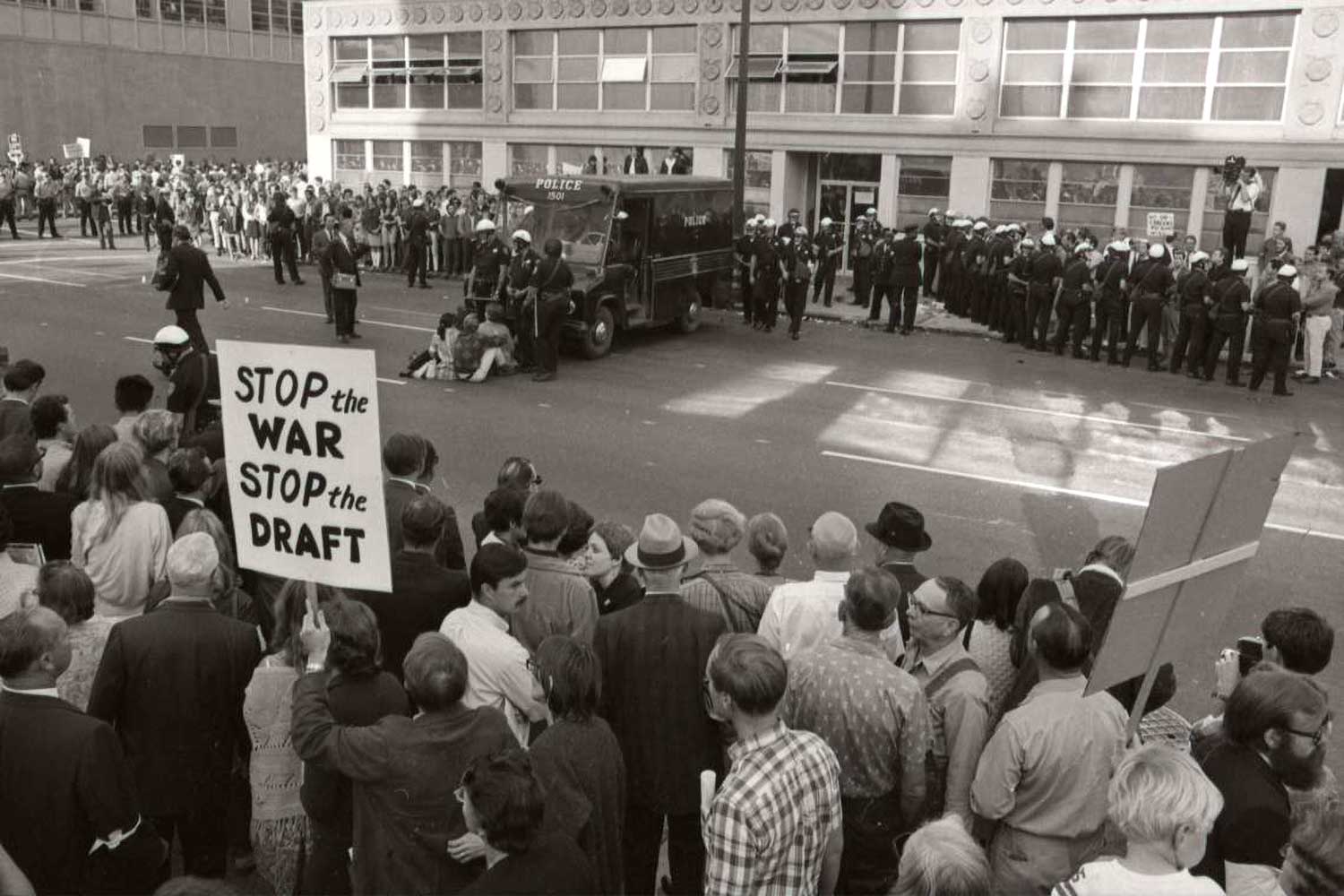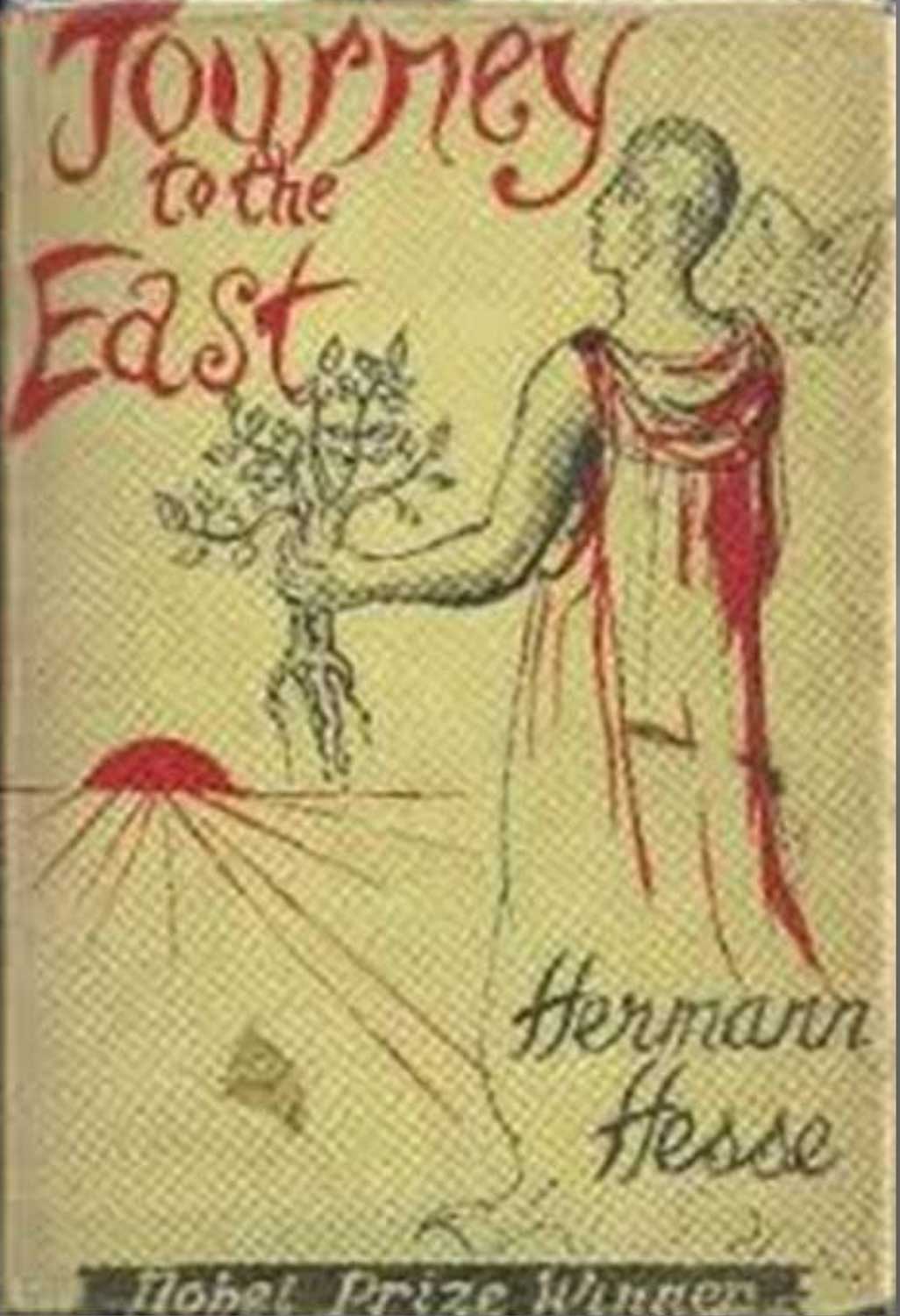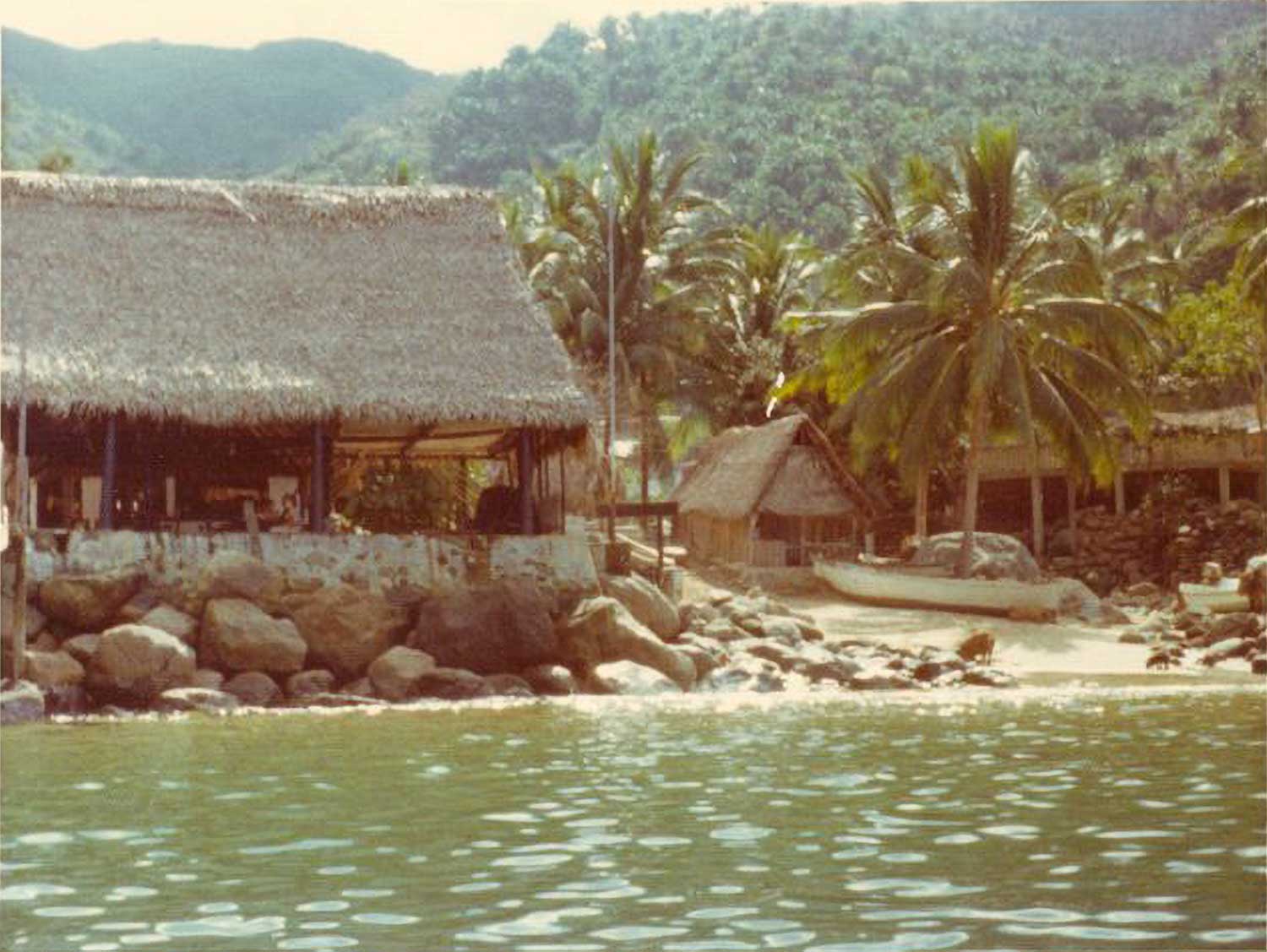Ācārya Siṁha
The Life of Swami Bhakti Gaurava Narasiṅgha Mahārāja
Chapter 3 – South of the Border
(1967-1968)
When he arrived at the Morning Star commune, Narasiṅgha Mahārāja immediately recognised several faces from The Haight. One was a hippy named David who’s father was a policeman in Los Angeles. Naturally, hippies were not fond of law enforcement, so a cop’s kid who had become a hippy made him somewhat of a celebrity. Mahārāja and David hit it off and decided to head to La Honda, a small town off Skyline Drive in the redwood forests south of San Francisco. In La Honda several hippies that Mahārāja knew from the Haight, had rented cabins. Mahārāja and David thought that this seemed to be a good place to hang out for a while until further opportunities presented themselves.
Narasiṅgha Mahārāja was content living in La Honda. He spent hours under the tall redwoods meditating and reading Journey to the East and Siddhartha by Hermann Hesse, as well as The Hobbit by J.R.R. Tolkien. Although he initially enjoyed reading these books, he eventually concluded that they were utterly devoid of any real spiritual wisdom.
When food supplies ran low, Mahārāja and his friends would make their way down La Honda Road to the artichoke fields in San Gregorio where they would relieve the local farmers of a sack or two of their produce. Stealing food and regularly dumpster-diving behind supermarkets for discarded fruits, vegetables and dairy products was a standard survival tactic in those days for many of the youth.
Swami Narasiṅgha: When we were short of cash and food, it was down to the artichoke fields. I can remember sitting outside cooking on wood – a big pot of a hundred artichokes! Then somebody would go and buy two pounds of butter and melt it in the pot. You’d get your artichoke out of the pot, burn your fingers, and you’d sit and peel your artichoke, dunking it in butter. I think everyone ate a quarter pound of butter!
As the counterculture movement steadily grew state by state, it seemed as though the United States might actually undergo a revolution. On October 20th 1967, Narasiṅgha Mahārāja took part in one of the most famous anti-war demonstrations of that time – the ‘Stop the Draft Week’ demonstration at the Army Induction Centre in Oakland. About 4000 demonstrators poured out onto the streets and brought the city to a standstill, blockading buses carrying recruits to the Army’s conscription centre. Conscientious objectors to the Vietnam War burned their draft cards, shouted slogans and gave speeches denouncing the war and President Lyndon B. Johnson. A heavy police presence turned out to greet the protestors and it wasn’t long before things became violent. This would be the first of many anti-war demonstrations to turn violent across the country.

(Stop the Draft Protest, 1967)
Ominous news awaited Mahārāja back in The Haight. The postman had tried to deliver a letter to him from the U.S. Selective Services Department at Buddy’s apartment, but since he was apparently ‘dead’ he wasn’t there to receive it. Fortunately, no one there spilled the beans that Mahārāja was actually alive and well and living in La Honda. When he heard about this however, he sensed that Uncle Sam would eventually catch up with him somewhere, someday. He was not fully convinced that his suicide hoax would work.
Thus, in November 1967, in order to keep some distance between him and the authorities, he and four friends from The Haight decided to head for the remote coastal village of Yelapa in Mexico.
Narasiṅgha Mahārāja: At that time Yelapa was just a small fishing village. The uniqueness of it was that you could only get to it by boat. The boats at that time were like the African Queen! You felt like you were on Robinson Crusoe’s island. It was one of the most accessible, yet remote places you could get to from America. But nobody spoke English there. It’s all changed now – now it’s become a ‘die to retire to’ classy getaway in Mexico for rich Mexicans and expats.
Driving from San Francisco to Guadalajara, where they sold their car, they took a bus to a remote village in the mountains and purchased five horses from a ranchero. They bought saddles, sombreros, two days’ worth of supplies and rode out into the mountains.
However, the band of young men had miscalculated how long it would take to get to their destination. After five days ride, they had already ran out of food, and on the sixth day they were almost out of drinking water. The jungles around them provided nothing edible (or at least nothing they could recognise as edible) and it wasn’t long before they realised that they were lost. At one point in their journey they came across a ravine thousands of feet below them with water that they could not get to.
Narasiṅgha Mahārāja: Our mouths were as dry as the bottoms of your feet in May! Finally we discovered a farmhouse which had a small stream running where the animals could drink from. It was so shallow that to quench our thirst, we had to purse our lips and place them on the surface of the water – if we put our lips directly in the water we would end up sucking up all the mud at the bottom.
Continuing with their trek, they eventually came across a narrow trail next to a sheer hundred-foot drop. As the group rode single file, the horse that Mahārāja was riding lost its balance when the ground suddenly gave way under its hooves. Mahārāja’s hand was wrapped tightly around the reins. While the earth crumbled under its weight, the horse began to fall over the edge of the precipice as its back legs scrambled frantically for a secure foothold. The other members of the group quickly dismounted, grabbed Mahārāja by the arms, cut the leather reins binding his hand and pulled him to safety. As they did so, the horse plunged down the cliff to its death.
After this, Narasiṅgha Mahārāja and his companions spent another two days on foot before spotting the ocean from a mountaintop, which was still another full days walk ahead. On the tenth day they took a boat and finally reached Yelapa, haggard, dirty and hungry.
Life in Yelapa, however, was not as idyllic as they thought it would be. Mahārāja and his friends were all vegetarians, and their culinary choices in a fishing village were few and far between. All they ate three times a day was plain tortillas and sometimes a little rice.
Within a couple of weeks Mahārāja’s companions had had enough and gave up on the idea of living in Yelapa. They caught a boat to Puerto Vallarta and headed back to the United States. Narasiṅgha Mahārāja however decided to remain in Yelapa alone for a couple more months. He lived in a grass shack on the side of a hill where he continued to struggle with the language and the diet.
One full moon night, an American traveller named Kris Wright from San Diego suddenly turned up in the village. Since Kris spoke Spanish he talked with the locals who told him about the ‘tall gringo kid’ living in the grass hut, so Kris climbed the hill and met with Mahārāja. Kris was also a spiritual seeker and both young men found that they had a lot in common. During the course of their conversation, Kris told Mahārāja about a particular ‘āsana’ that he was trying to perfect. At this point, Mahārāja’s only exposure to yoga had been seeing the young man whom he had met on the beach in Puerto Vallarta in 1966.
Narasiṅgha Mahārāja: Kris was doing all these āsanas. From a standing position, he could bend over backwards – if he was in a circus, he could bend over backwards, come up in front, pick up a doughnut with his teeth then bring it back up and eat it without using his hands! Apart from just seeing someone else doing āsanas, that was my first real experience of yoga. Kris’s practice was intense. He wasn’t doing the ‘sponge-bob’ yoga stuff that they do in the yogaśālās nowadays.
As Kris spoke about yoga and showed Mahārāja the yoga–āsanas that he knew, Mahārāja became inspired and so that night and for the next few days, Kris taught him a few āsanas.
Kris remained in Yelapa for a fortnight and then returned to the United States. But after a few weeks, another American from Tennessee named Bill showed up. Bill was not a hippy – he was more of a ‘hick’. He looked totally out of place in Yelapa, but Narasiṅgha Mahārāja was happy just to have someone around who could speak English. Unlike Mahārāja, Bill was not vegetarian and would regularly go hunting for fish with a large Bowie knife. One day he dropped his knife deep into his leg by accident. There was no doctor, clinic or hospital in Yelapa, so all the local fishermen could do was to squeeze some lime juice into the wound to clean it – the pain was so intense that Bill immediately passed out. The next day, Narasiṅgha Mahārāja and Tennessee Bill hopped on a boat for Puerto Vallarta and hitch-hiked back to California. Things only got worse when on the way they stopped to eat at a restaurant where Bill suddenly developed loose motion and began vomiting all the colours of the rainbow. With no one else to take care of him, Mahārāja was forced to take Bill to the nearest hospital where they bid farewell to each other. The trip to Mexico had not gone exactly as planned…
Narasiṅgha Mahārāja was happy to return to the US, but unbeknownst to him, the Selective Service had delivered another induction letter to his apartment in The Haight demanding that he report to his local draft board, but because he was ‘dead’ he didn’t receive it. They had seen through his ruse and had now placed him on a delinquent list.
Mahārāja travelled to Jacksonville again where he stayed with his friend George who had conveniently broken his leg and was temporarily exempt from any military service. It wasn’t long however until the Military Police tracked him down at George’s house. As the MPs came up the drive, Mahārāja saw them and quickly hid behind the front door. When they rang the bell, George opened the door and told the MPs, “I haven’t seen him in ages – he kinda just disappeared some months ago!” Mahārāja was just behind the door about a foot away from them.
When George had recovered, they hatched a plan to evade the authorities and began moving around the country. At that time, the law was that when you moved to a new town you had to register with the post office. George and Mahārāja would register, and when they figured out when their papers for their pre-induction physical would be arriving, they moved to another place and the government would have to resend the papers to the new address.
They did this for a while until one day, Mahārāja received a letter saying that he must join the military or face severe legal proceedings and possibly imprisonment. Eventually Mahārāja and George concluded that the only way to avoid going to Vietnam legally was to enlist in the Navy Reserves. At that time it was common for young men to evade the draft by preemptively enlisting in military forces that were unlikely to ever see combat in Vietnam, so Mahārāja and George went to the Navy Reserves recruitment centre to volunteer. However, they were told that there were no vacancies left – this meant that they would have to join the Navy proper. The receptionist made an appointment for them to appear at the US Navy Recruiter Centre at 7:00 the next morning. Mahārāja and George however were so tired that the next morning when their alarm clock went off at 6:30, George promptly threw it in a bathtub full of water and they went back to sleep.
The next morning at 8:00am, Mahārāja found a letter in his postbox saying that they had been accepted as Navy Reserves. He quickly woke George up and they ran down to the office to report. The next thing they knew they were being told by an official that they would be seeing active duty. Bewildered, Mahārāja told the officer, “I think there’s been a misunderstanding. I thought this was a pre-induction” to which the officer barked, “No! This is an induction. Your ass belongs to the navy now!” Upon hearing this, Mahārāja turned around, walked out, went back to his apartment with his bag of uniforms and threw them in a dumpster truck.
He was now wanted for draft evasion.
He travelled back to La Honda, where he decided to get his own cabin. Up until now, he had been staying in small apartments packed with people, but he realised that he needed some space of his own to pursue his own spiritual interests.
Narasiṅgha Mahārāja: The cabin was awesome with wood floors and built on the side of a ravine engulfed by redwoods. It was a two story place. I rented the bottom floor. I spent every day sitting in front of the wood burning stove reading ‘Journey to the East’ and ‘Siddhartha’ over and over again — I felt I was going forward and nowhere at the same time.
In La Honda he would wake up early in the morning, meditate, do yoga and he kept to a strict vegetarian diet of brown rice and steamed vegetables.
Everything seemed to be going fine until mid-1968, when he returned to The Haight to visit some friends at their apartment. One evening at around 9:00pm when he was alone, the apartment was suddenly raided by the police and he was arrested.












